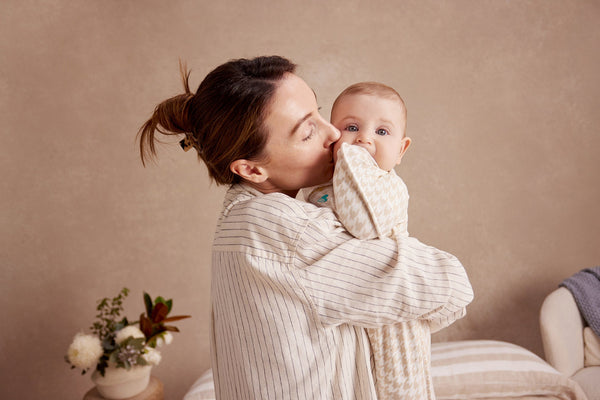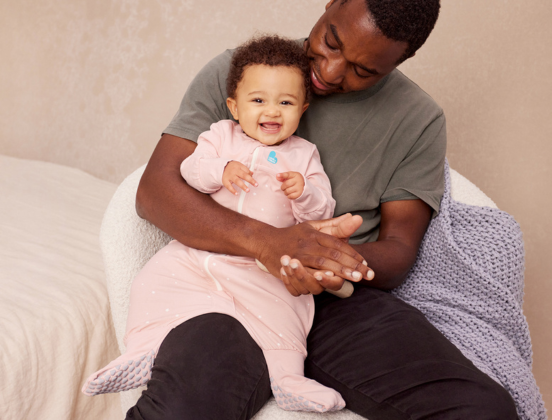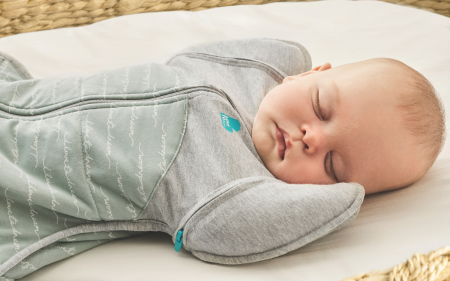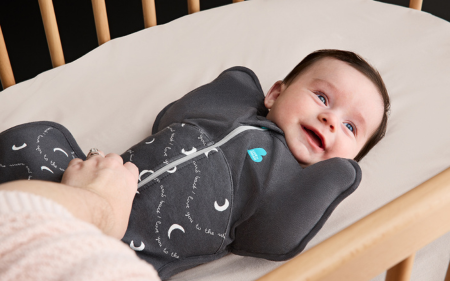Is it safe for babies to sleep on their stomach?
Until the age of 12 months, you should always put your baby to sleep on their back. It is considered unsafe for babies (especially newborn – 5 months) to sleep on their stomach, because it considerably increases the risk of SIDS.
At what age can a baby sleep on their tummy?
Some babies begin to roll onto their tummies during sleep as they grow stronger and more mobile. In many cases, this is considered safe once they can roll both ways on their own, usually around 5 to 6 months of age. However, it’s still recommended to always place your baby on their back to sleep until they’re at least 12 months old.
It's important to stop swaddling once your baby has started showing signs of rolling.
If your baby consistently rolls onto their stomach during sleep, speak with your GP or pediatrician to ensure their sleep space remains safe and supportive for everyone’s peace of mind.
What is the safest position for a baby to sleep?
The safest way for a baby to sleep is on their back. It not only lowers the risk of SIDS but back sleepers are often at reduced risk of ear infections, stuffy noses and fever.
What are the risks of allowing a baby to sleep on their tummy?
Numerous studies and extensive research into SIDS have concluded that the risks of SIDS significantly increases if you put a newborn to sleep on their stomach. Other risks include:
- Baby breathing in their own exhaled breath can increase the risk of overheating
- Tummy sleepers may have a sudden decrease in blood pressure and/or heart rate control
SIDS and SUID
SIDS (Sudden Infant Death Syndrome) is the term used to describe the unexpected or unexplained death of a healthy infant between newborn and 1 year of age, usually during sleep. Most SIDS related incidents occur before the age of 6 months.
Doctors and pediatric specialists don’t know the exact cause of SIDS but extensive research suggests the following increases the risk of SIDS occurring:
-
- Overheating
- Babies sleeping on tummy
- Baby sleeping with blankets or pillows in a cot
- Baby sleeping in the same bed as parents, other people or pets
- Exposure to cigarette smoke
- Sleeping on unsuitable surfaces such as cushions or sofas









